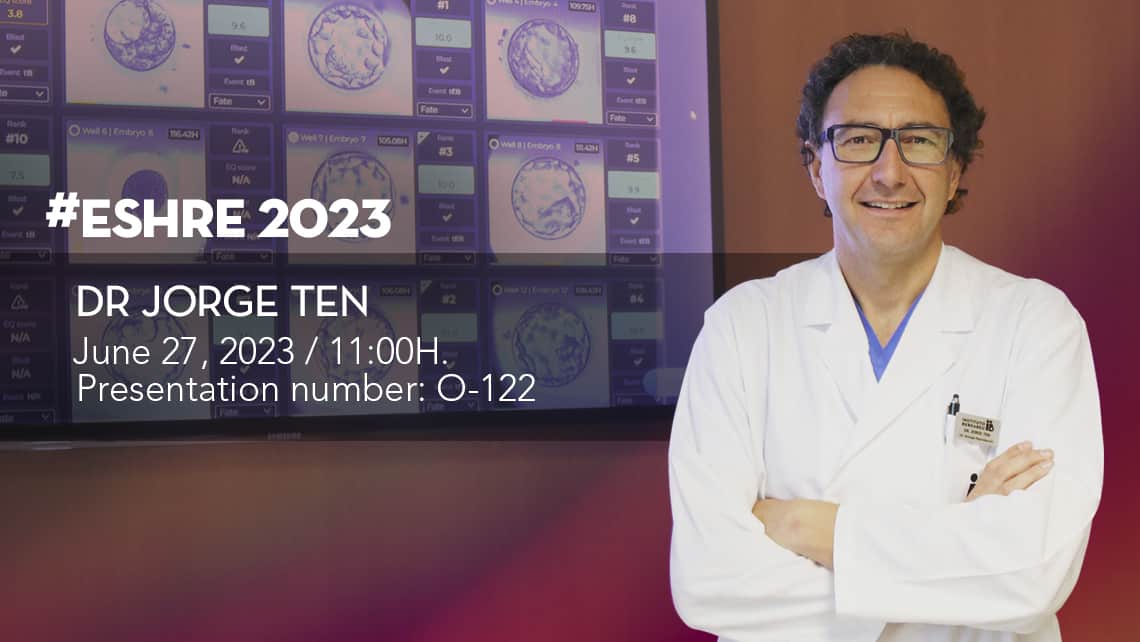An IB study on the use of Artificial Intelligence for embryo selection stands out in the most important fertility congress in the world.
June, 28th 2023

To reduce uncertainty when a patient is undergoing an assisted reproduction treatment and improving pregnancy rates are two of the objectives during assisted reproduction treatment. Instituto Bernabeu is taking very relevant steps at a scientific level to achieve these important objectives for patients and specialists.
This is what doctor Jorge Ten, Instituto Bernabeu’s Embryology Unit director, explains. Dr Ten is presenting an oral presentation at the most important fertility congress in the world, the European Society of Human Reproduction and Embryology (ESHRE) Congress; a revolutionary study on the selection of the embryo with the greatest capacity to implant in the maternal uterus, by means of an Artificial Intelligence algorithm. Dr Ten is one of the members of the new AI International Unit applied to Reproductive Medicine created at Instituto Bernabeu.
This work, which is the first study worldwide to integrate and validate an AI-based embryo selection algorithm in Geri time-lapse incubators, is an essential step towards the clinical application of AI-based technology solutions in the IVF laboratory.
The research, carried out over more than two years, has analysed the development of more than 3,000 embryos, evaluating the algorithm’s ability to predict which embryo will have the best conditions to achieve a viable pregnancy, through its morphological and morphokinetic information; this implies a deeper knowledge of the embryo.
Scientists at Instituto Bernabeu have found that the AI algorithm is able to make predictions with a high degree of accuracy about whether the embryo is chromosomally normal, the embryo development to blastocyst stage, the selection of the best candidate for transfer and live births percentage.
With this study “we will expand our knowledge on the third patient, the embryo, and we want to have the maximum information possible on these embryos in order to choose the one that, for a given patient, can improve clinical results. In short, it will provide the patient with more possibilities of achieving an evolutionary pregnancy and the birth of a healthy child,” explains the embryology expert. Dr Ten emphasises that one of the advantages of using AI in the IVF laboratory is that it shortens the time it takes to achieve pregnancy.
Dr Ten’s presentation during the congress will take place on 27th June at 11am in Copenhagen. In addition, the specialist is part of the panel of 5 experts holding a scientific meeting on July 8th in Frankfurt, where they will analyse and highlight the studies presented at the ESHRE 2023 with the greatest clinical relevance and most outstanding.
The first study to assess the clinical efficacy of CHLOE-EQ on the assessment of embryo viability of embryos cultured in a GERI time-lapse incubator J. Ten, L. Herrero, Á. Linares, E. Álvarez, T. Latin, A. Zepeda, A. Bernabeu, R. Bernabeu
